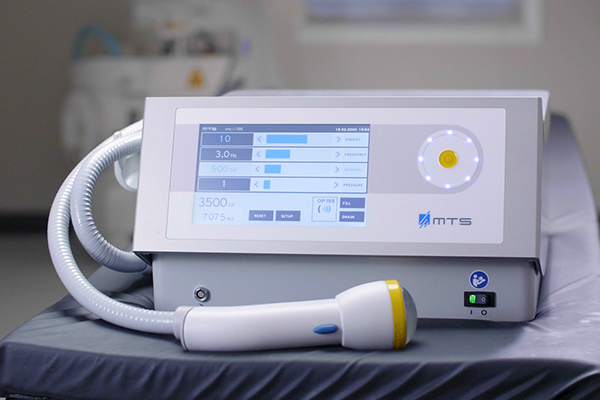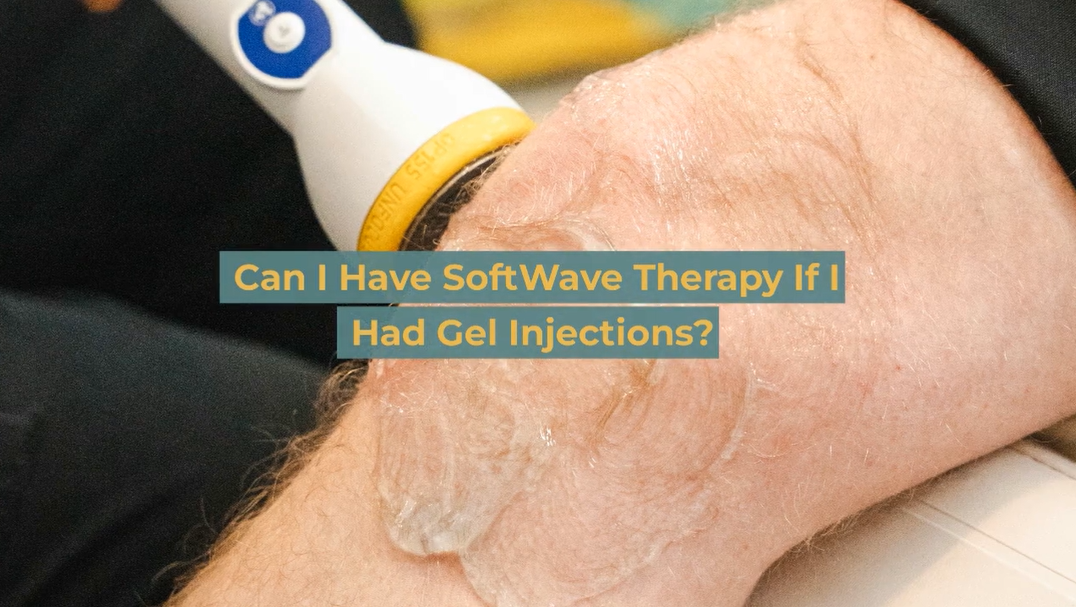Can I Have SoftWave Therapy If I Had Gel Injections?
If you’re looking for non-invasive, drug-free pain relief, you might be wondering if SoftWave therapy is a good option if you’ve had gel injections in the past. The answer is yes! Especially since SoftWave therapy is a great way to help reduce inflammation and improve mobility. Read on to learn the benefits of both and more.
New Patient Special
Try SoftWave for just $69 at a clinic near you and learn if you’re a candidate for full treatment

SoftWave Therapy & Gel Injections: What Are They?
SoftWave therapy is a non-invasive treatment that uses sound waves to stimulate healing in the body. The sound waves are directed at the affected area, triggering the body’s natural healing process and reducing inflammation and pain. This therapy is often used to treat joint pain and mobility issues as well as other conditions such as tendinitis and plantar fasciitis. SoftWave therapy is safe, painless, and requires no downtime, making it an ideal alternative to invasive procedures and medications.
On the other hand, gel injections, also known as viscosupplementation, involve injecting a gel-like substance into the joint to alleviate pain, reduce inflammation and improve mobility. The gel used in these injections is often composed of hyaluronic acid, a natural substance found in the body that lubricates and cushions the joints. Gel injections are typically used to treat osteoarthritis, a condition causing joint pain and stiffness.
Which Treatment Should You Go For—SoftWave Therapy or Gel Injections?
Choosing between SoftWave therapy and gel injections depends on several factors, including the severity of your condition, your medical history, and your treatment preferences. To make an informed decision on the most appropriate treatment for your condition, it’s best to seek guidance from your healthcare provider.
Nonetheless, starting with a non-invasive treatment like SoftWave therapy is generally recommended. It’s important to follow the recommended number of sessions to obtain the maximum benefit before considering more invasive procedures. If you’re a candidate for SoftWave treatment, you can expect both immediate and long-lasting results. While some patients may experience a 20-50% reduction in pain and mobility after just one session, others may require multiple sessions to experience the full benefit.
Can You Have SoftWave Therapy If You Had Gel Injections?
Yes, you can have SoftWave therapy if you have had gel injections in the past. It is generally safe for patients to undergo SoftWave treatment. Furthermore, combining SoftWave therapy and gel injections may have a positive effect on the treatment. A study published in the Journal of Orthopaedic Surgery and Research found that combining SoftWave therapy and hyaluronic acid injections was safe and effective for knee osteoarthritis. Researchers concluded that combining these two treatments can provide additive benefits and may be a promising option for patients with osteoarthritis.
If you’ve had gel injections in the past and are considering SoftWave therapy, be sure to speak to our healthcare provider to determine what is the best option for you.
Final Thoughts
SoftWave therapy can be a safe and effective option for those seeking pain relief and improved joint function. Using both treatments together may even provide a synergistic effect, leading to faster and more effective pain relief.
If you have had gel injections and are considering SoftWave therapy, talk to your doctor to determine the best treatment plan for your needs. With its non-invasive nature and proven effectiveness, SoftWave therapy is a non-invasive option for those who want a safe and effective treatment for their joint pain. Contact our SoftWave providers today to learn more about SoftWave therapy and how it can help you.
Disclaimer: The information provided in this blog is for educational and informational purposes only and is not intended as a substitute for professional medical advice, diagnosis, or treatment. The content provided in this blog should not be used to diagnose or treat any health problems or illnesses. Always consult with a qualified healthcare professional before making any changes to your healthcare routine or treatment plan.
New Patient Special
Try SoftWave for just $69 at a clinic near you. No drugs. No surgery. Just relief.





